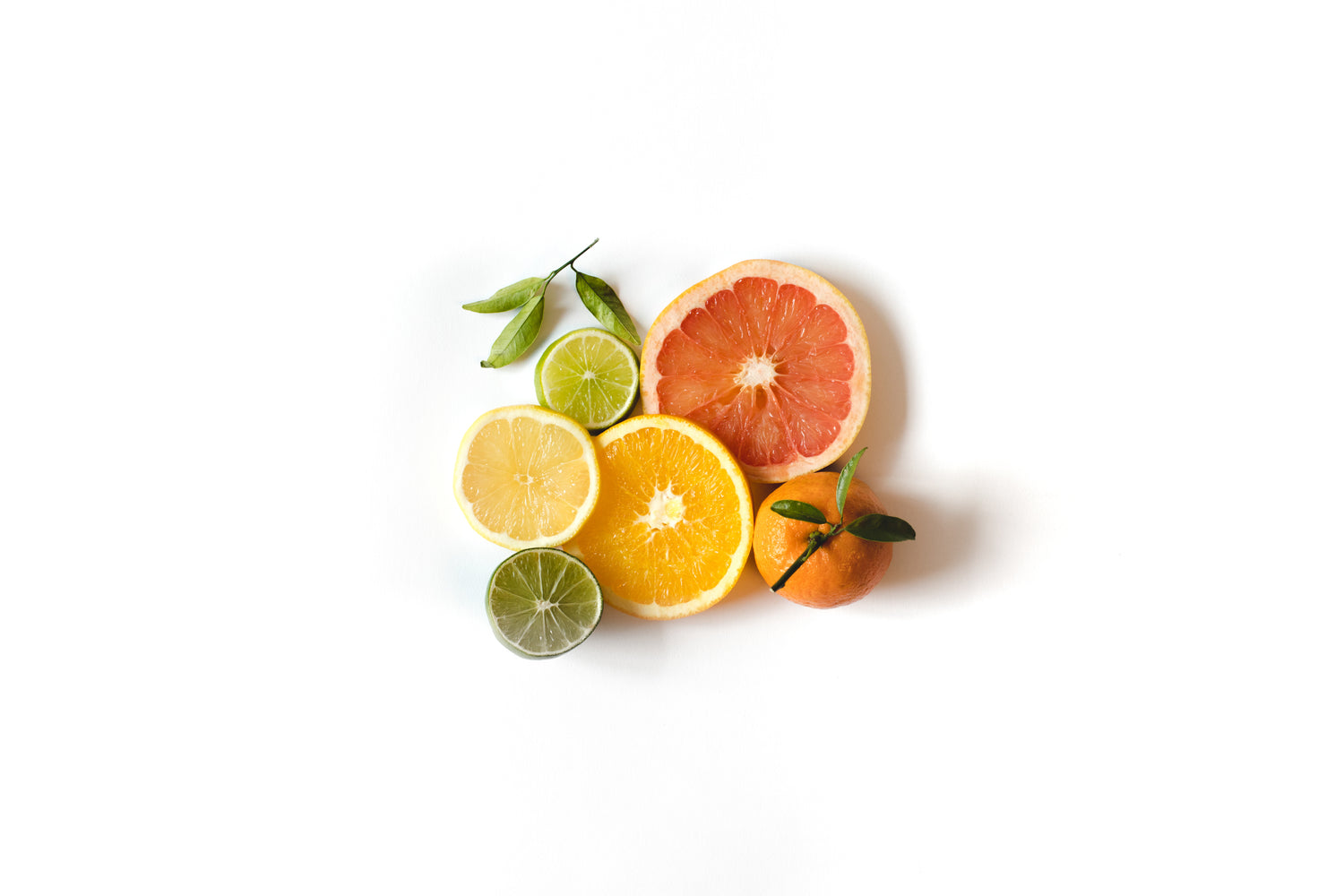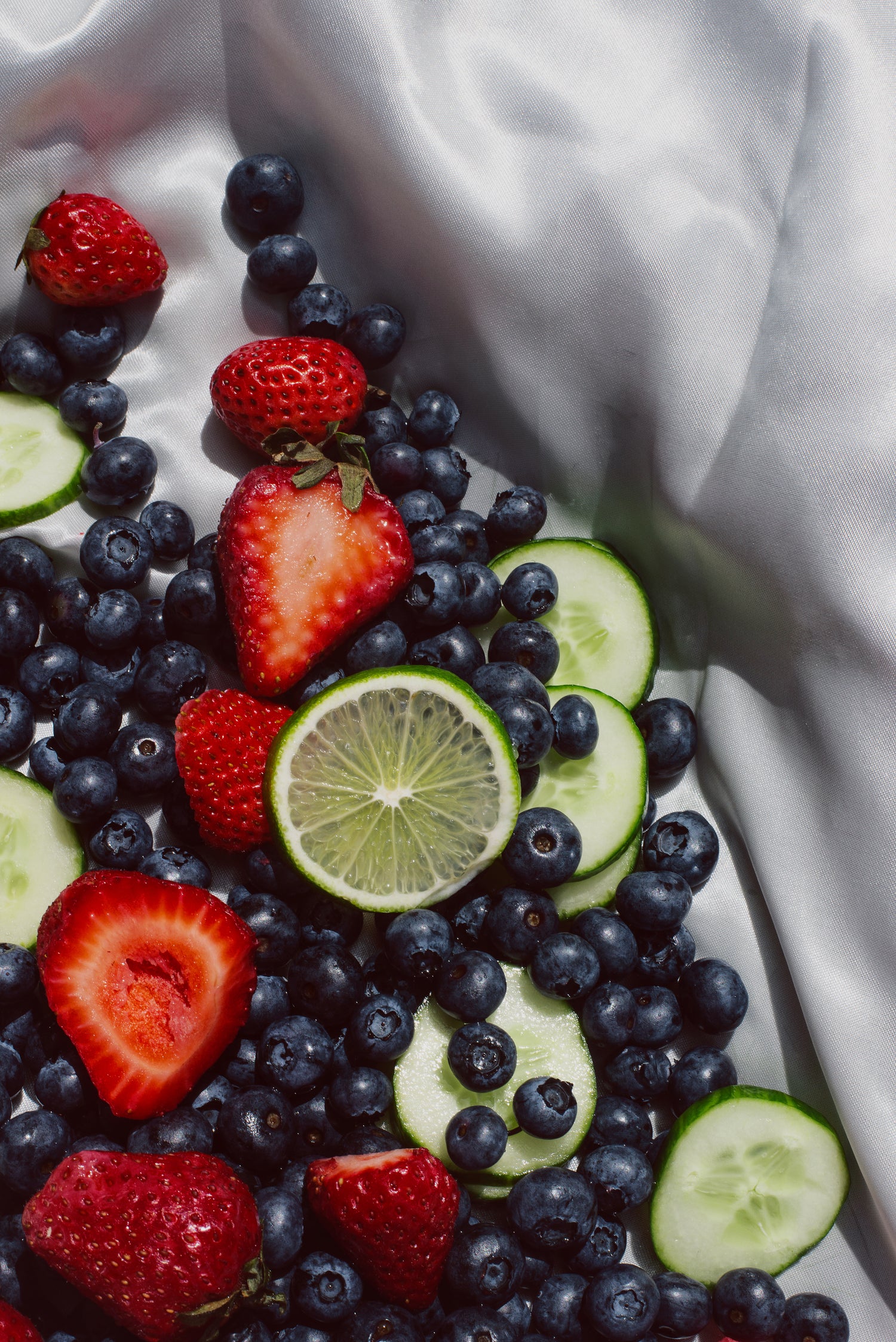
Nature is Good
Fresh fruit juices, milkshakes, smoothies, and fruit salads are popular dietary choices that offer a variety of health benefits. Each of these options provides essential nutrients, vitamins, and minerals that contribute to overall wellness. This webpage aims to elucidate the nutritional aspects and health advantages associated with these beverages and food items.

Fruit Juices
Fresh fruit juices are a wonderful way to enjoy the natural flavors and nutrients that fruits provide. They offer a convenient and delicious option for boosting your daily intake of vitamins, minerals, and antioxidants. Benefits of Fresh Fruit Juices are;
Nutrient-Rich: Freshly made juices retain essential vitamins like Vitamin C, potassium, and folate, which support immune health, hydration, and energy levels.
Quick Absorption: Juices are easily digested, allowing the nutrients to be absorbed quickly by your body—perfect for a refreshing energy boost.
Hydration: Many fruits, such as watermelon and oranges, have high water content, making their juices an excellent way to stay hydrated.
Versatility: Fresh fruit juices can be customized with combinations of fruits, vegetables, and herbs, offering endless flavor possibilities.

Milkshakes
Milkshakes, often made with milk and ice cream, can serve as a source of calcium and protein. A typical milkshake can contain around 300-600 calories, depending on the ingredients used. While they can be high in sugar and saturated fats, incorporating fruits into milkshakes can enhance their nutritional profile by adding fiber and essential vitamins. For example, a banana milkshake not only provides potassium but also contributes to the daily fiber intake, which is crucial for digestive health.

Smoothies
Smoothies are another versatile option that combines fruits, vegetables, and other ingredients such as yogurt or protein powders. A standard smoothie can range from 150 to 400 calories, depending on the components. The blending process retains the fiber content of the fruits and vegetables, which aids in digestion and promotes satiety. Studies have indicated that consuming smoothies can lead to increased fruit and vegetable intake, which is associated with a lower risk of cardiovascular diseases.

Fruit Salads
Fruit salads, composed of a variety of fresh fruits, are an excellent way to consume a diverse range of nutrients. A serving of fruit salad can provide significant amounts of vitamins, minerals, and dietary fiber. For instance, a fruit salad containing strawberries, blueberries, and kiwi can offer more than 100% of the daily recommended intake of vitamin C. The consumption of fruit salads has been linked to improved hydration and weight management, as they are low in calories yet high in volume and nutrients.
Collapsible content
Apple
Apples are not just delicious but also packed with essential nutrients. Here's a breakdown of their nutritional benefits:
- Low in Calories: A medium apple contains about 95 calories, making it a great snack option for those watching their calorie intake.
- Rich in Fiber: Apples are a great source of dietary fiber, with about 4 grams per medium apple. Fiber supports digestion and can help maintain a healthy gut.
- Natural Sugars: They contain natural sugars, mainly fructose, which provide a quick energy boost.
- Vitamins and Minerals: Apples are a good source of Vitamin C, which supports the immune system, and potassium, which helps maintain heart health and proper muscle function.
- Antioxidants: Apples contain phytochemicals such as quercetin, flavonoids, and polyphenols, which have antioxidant properties that may help reduce inflammation and lower the risk of chronic diseases.
- Low in Fat and Sodium: Apples are naturally fat-free and very low in sodium, making them heart-healthy.
The phrase “an apple a day keeps the doctor away” isn’t too far from the truth! Apple is a best companion in their natural form, in juices and salads?
Banana
Bananas are a powerhouse of nutrients and offer numerous health benefits. Here's a breakdown of their nutritional profile:
- Calories: A medium banana contains about 105 calories.
- Carbohydrates: They are rich in carbohydrates, with approximately 27 grams per medium banana, including 3 grams of dietary fiber and 14 grams of natural sugars.
- Potassium: Bananas are an excellent source of potassium, providing around 422 mg per medium banana. Potassium is essential for maintaining healthy blood pressure and muscle function.
- Vitamins: They are a good source of Vitamin B6 (about 25% of the daily value) and Vitamin C (about 10% of the daily value), which support immune health and energy metabolism.
- Minerals: Bananas also contain magnesium, manganese, and small amounts of other essential minerals.
- Low in Fat and Protein: Bananas are naturally low in fat (0.4 grams) and protein (1.3 grams).
Bananas are versatile and can be enjoyed as a quick snack, in milkshakes, smoothies, or in fruit salads.
Carrot
Carrots are not only crunchy and delicious but also packed with essential nutrients. Here's a breakdown of their nutritional profile, based on certified sources:
- Calories: A medium-sized carrot (61g) contains about 25 calories.
- Carbohydrates: Carrots provide around 6 grams of carbohydrates, including 1.5 grams of dietary fiber and 2.9 grams of natural sugars.
- Vitamins: They are an excellent source of Vitamin A (509 mcg per medium carrot), which supports vision and immune health. Carrots also contain Vitamin K (8 mcg) and small amounts of Vitamin C and Vitamin E.
- Minerals: Carrots are rich in potassium (195 mg per medium carrot), which helps maintain healthy blood pressure, and also provide calcium, magnesium, and phosphorus.
- Antioxidants: Carrots are loaded with beta-carotene, a powerful antioxidant that gives them their orange color and is converted into Vitamin A in the body.
- Low in Fat and Protein: Carrots are naturally low in fat (0g) and protein (0.5g).
Carrots are versatile and can be enjoyed in juice, raw or cooked.
Celery
Celery is a crisp and hydrating vegetable with a wealth of nutrients. Here's an appealing and informative breakdown of its nutritional profile, along with celery juice:
🥬 Celery Nutrition Facts 🥬 (Serving Size: 1 medium stalk, 40g)
- Calories: 6
- Carbohydrates: 1.2g
- Protein: 0.3g
- Fat: 0.1g
- Vitamin K: 11.7mcg (10% of the daily value)
- Vitamin A: 8.8mcg (1% of the daily value)
- Potassium: 104mg
- Folate: 14.4mcg (4% of the daily value)
Celery is composed of about 95% water, making it an excellent choice for hydration. It is low in calories and rich in antioxidants, which help combat oxidative stress. Its fiber content supports digestion, and its potassium aids in maintaining healthy blood pressure.Celery juice is a nutrient-rich beverage that provides hydration and essential vitamins. It is particularly high inVitamin K, which supports bone health, andpotassium, which helps regulate blood pressure. Celery juice is also known for its potential anti-inflammatory properties.
Cucumber
Cucumbers are a refreshing and hydrating fruit with a crisp texture and numerous health benefits. Here's an informative breakdown of their nutritional profile:
🥒 Cucumber Nutrition Facts 🥒 (Serving Size: 1/2 cup sliced cucumber, 52g)
- Calories: 8
- Carbohydrates: 1.9g
- Protein: 0.3g
- Fat: 0.1g
- Vitamin K: 8.5mcg (7% of the daily value)
- Vitamin C: 1.5mg (2% of the daily value)
- Potassium: 76.4mg
- Magnesium: 6.8mg
Cucumbers are composed of about 96% water, making them an excellent choice for hydration. They are low in calories and rich in antioxidants, which help combat oxidative stress. Cucumber juice is a hydrating and nutrient-rich beverage, packed with potassium and Vitamin C. It helps maintain electrolyte balance, supports digestion, and promotes healthy skin. For maximum benefits, we use unpeeled cucumbers when juicing.Cucumbers and their juice are versatile and can be enjoyed in salads, smoothies, or as a refreshing drink. They’re a perfect addition to a healthy lifestyle!
Green Grapes
Green grapes are a delicious and nutritious snack. Here's a breakdown of their nutritional profile based on certified sources:
- Calories: A 1-cup serving (151g) of green grapes contains about 104 calories.
- Carbohydrates: They provide 27.3 grams of carbohydrates, including 1.4 grams of dietary fiber and 23.4 grams of natural sugars.
- Vitamins: Green grapes are a good source of Vitamin C (4% of the daily value) and Vitamin K (22% of the daily value), which support immune health and blood clotting, respectively.
- Minerals: They contain potassium (288 mg per cup), which helps regulate blood pressure, and small amounts of calcium and magnesium.
- Low in Fat and Protein: Green grapes are naturally low in fat (0.2 grams) and protein (1.1 grams).
Green grapes are also rich in antioxidants like resveratrol and flavonoids, which may help reduce inflammation and support heart health.
Grapefruit
Grapefruits are a refreshing and nutrient-packed citrus fruit. Here's an informative breakdown of their nutritional profile:
🍊 Grapefruit Nutrition Facts 🍊 (Serving Size: 1/2 medium grapefruit, 123g)
- Calories: 52
- Carbohydrates: 13.2g
- Protein: 0.9g
- Fat: 0.2g
- Vitamin C: 38.4mg (64% of the daily value)
- Vitamin A: 71.3mcg (8% of the daily value)
- Potassium: 166mg
- Calcium: 27mg
- Magnesium: 11mg
Grapefruits are an excellent source of Vitamin C, which supports immune health and wound healing, and Vitamin A, which promotes healthy vision. Their high water content makes them hydrating and refreshing, while their fiber aids digestion. Whether enjoyed fresh, juiced, or as a tangy addition to salads, grapefruits are a versatile and healthful choice.
Kiwi
Kiwis are small but mighty fruits packed with nutrients. Here's a breakdown of their nutritional profile based on certified sources:
- Calories: One medium kiwi (75g) contains about 42 calories.
- Carbohydrates: Provides 10.1 grams of carbs, including 2.1 grams of dietary fiber and 6.7 grams of natural sugars.
- Vitamins: Kiwis are an excellent source of Vitamin C, offering 56 mg (about 62% of the daily value). They also provide Vitamin K and small amounts of Vitamin E and folate.
- Minerals: Rich in potassium (148 mg per medium kiwi), which supports heart health, and also contains magnesium and calcium.
- Low in Fat and Protein: Kiwis are naturally low in fat (0.4 grams) and protein (0.8 grams).
Kiwis are also known for their antioxidants, which help combat oxidative stress and support overall health.
Lemon
Lemons are a zesty and versatile fruit, packed with nutrients and flavor. Here's an informative breakdown of their nutritional profile:
🍋 Lemon Nutrition Facts 🍋 (Serving Size: 1 medium lemon, 58g)
- Calories: 17
- Carbohydrates: 5.4g
- Protein: 0.6g
- Fat: 0.2g
- Vitamin C: 30.7mg (51% of the daily value)
- Potassium: 80mg
- Calcium: 15mg
- Magnesium: 5mg
Lemons are an excellent source of Vitamin C, which supports immune health, skin health, and wound healing. Their high fiber content aids digestion, while their potassium helps maintain healthy blood pressure. Lemons are also low in calories, making them a great addition to a balanced diet. Whether used in water, juice, lemonade, dressings, marinades, or desserts, lemons add a burst of flavor and nutrition to any dish.
Lime
Limes are a tangy and nutrient-rich citrus fruit that adds zest to any dish or drink. Here's an informative and breakdown of their nutritional profile:
🍈 Lime Nutrition Facts 🍈 (Serving Size: 1 medium lime, 67g)
- Calories: 20
- Carbohydrates: 7.1g
- Protein: 0.5g
- Fat: 0.1g
- Vitamin C: 19.5mg (22% of the daily value)
- Calcium: 22mg (2% of the daily value)
- Potassium: 68mg
- Magnesium: 4mg
Limes are an excellent source of Vitamin C, which supports immune health and skin vitality. Their fiber content aids digestion, while potassium helps maintain healthy blood pressure. Limes are also rich in antioxidants and flavonoids, which may reduce inflammation and promote overall well-being. Whether used in marinades, beverages, or desserts, limes bring a refreshing and tangy twist to your meals.
Mango
Mangoes are not only delicious but also packed with nutrients. Here's a breakdown of their nutritional profile:
- Calories: One cup (165g) of mango provides about 99 calories.
- Carbohydrates: Contains 25g of carbohydrates, including 2.6g of dietary fiber and 23g of natural sugars.
- Vitamins: Mangoes are an excellent source of Vitamin C (67% of the daily value) and also provide Vitamin A (10% of the daily value), Vitamin E, Vitamin K, and several B vitamins like folate and Vitamin B6.
- Minerals: Rich in potassium (6% of the daily value) and also contain magnesium and copper.
- Low in Fat and Protein: Mangoes are naturally low in fat (0.6g) and protein (1.4g).
Mangoes are versatile and can be enjoyed fresh, in smoothies, or as part of savory dishes.
Melon
Melons are a refreshing and nutrient-rich fruit family, perfect for hydration and health. Here's an informative breakdown of their nutritional profile:
🍈 Melon Nutrition Facts 🍈 (Serving Size: 1 cup of cantaloupe, 156g)
- Calories: 53
- Carbohydrates: 13g
- Protein: 1.3g
- Fat: 0.3g
- Vitamin C: 57mg (64% of the daily value)
- Vitamin A: 299mcg (33% of the daily value)
- Potassium: 417mg (9% of the daily value)
- Folate: 37mcg (9% of the daily value)
Melons, such as cantaloupe, honeydew, and watermelon, are excellent sources of Vitamin C, which supports immune health, and Vitamin A, which promotes healthy vision. Their high water content makes them incredibly hydrating, while their natural sweetness satisfies cravings without added sugars. Whether enjoyed fresh, in juices, in smoothies, or as part of fruit salads, melons are a versatile and nutritious choice.
Orange
Oranges are a nutrient-rich fruit with numerous health benefits. Here's a breakdown of their nutritional profile and their use in juice and fruit salads:
- Calories: A medium orange (140g) contains about 66 calories.
- Carbohydrates: Provides 14.8 grams of carbs, including 2.8 grams of fiber and 12 grams of natural sugars.
- Vitamins: Oranges are an excellent source of Vitamin C, covering 92% of the daily value (DV). They also provide folate (9% DV) and small amounts of Vitamin A and thiamine.
- Minerals: Rich in potassium (5% DV) and calcium (5% DV), which support heart and bone health.
- Antioxidants: Contain flavonoids and carotenoids, which have anti-inflammatory and antioxidant properties.
Pear
Pears are a sweet and fiber-rich fruit with a host of health benefits. Here's an informative breakdown of their nutritional profile:
🍐 Pear Nutrition Facts 🍐 (Serving Size: 1 medium pear, 178g)
- Calories: 101
- Carbohydrates: 27g
- Protein: 0.6g
- Fat: 0.3g
- Vitamin C: 8mg (8% of the daily value)
- Vitamin K: 7.8mcg (6% of the daily value)
- Potassium: 206mg
- Copper: 0.1mg (10% of the daily value)
Pears are an excellent source of dietary fiber, which supports digestion and heart health. They also provide Vitamin Cfor immune support and potassium for maintaining healthy blood pressure. The skin of the pear contains a significant portion of its fiber and nutrients, so it's best to enjoy them unpeeled. Whether eaten fresh, juiced, or added to salads, pears are a versatile and nutritious choice.
Pineapple
Pineapples are a tropical treasure trove of nutrients! Here's an artistic take on their nutritional profile:
🌴 Pineapple Nutrition Facts 🌴 (Serving Size: 1 cup of pineapple chunks, 165g)
- Calories: 82
- Carbohydrates: 22g
- Protein: 0.9g
- Fat: 0.2g
- Vitamin C: 79mg (88% of the daily value)
- Manganese: 1.5mg (76% of the daily value)
- Copper: 181mcg (20% of the daily value)
- Potassium: 180mg
Pineapples are not just sweet and juicy—they're also packed with Vitamin C to boost your immune system and manganese for strong bones and antioxidant support. Their natural enzymes, like bromelain, aid digestion and may reduce inflammation. Whether enjoyed fresh, in smoothies, or as a tangy addition to savory dishes, pineapples are a versatile and nutritious delight.
Pomegranate
Pomegranates are a treasure trove of nutrients and flavor! Here's an artistic take on their nutritional profile:
🌟 Pomegranate Nutrition Facts 🌟 (Serving Size: 1 medium pomegranate, 282g)
- Calories: 234
- Carbohydrates: 52.7g
- Protein: 4.7g
- Fat: 3.3g
- Vitamin C: 28.8mg (32% of the daily value)
- Vitamin K: 46.2mcg (39% of the daily value)
- Folate: 107.2mcg (27% of the daily value)
- Potassium: 666mg
- Copper: 50% of the daily value
- Manganese: 15% of the daily value
Pomegranates are rich in antioxidants like ellagic acid and punicalagins, which may help reduce inflammation and support heart health. Their juicy seeds, known as arils, are a delightful addition to salads, smoothies, or even as a standalone juice.
Red Grapes
Red grapes are not only delicious but also packed with nutrients. Here's a breakdown of their nutritional profile:
- Calories: A 1-cup serving (151g) of red grapes contains about 104 calories.
- Carbohydrates: They provide 27.3 grams of carbohydrates, including 1.4 grams of dietary fiber and 23.4 grams of natural sugars.
- Vitamins: Red grapes are a good source of Vitamin C (4% of the daily value) and Vitamin K (22% of the daily value), which support immune health and blood clotting, respectively.
- Minerals: They contain potassium (288 mg per cup), which helps regulate blood pressure, and small amounts of calcium and magnesium.
- Low in Fat and Protein: Red grapes are naturally low in fat (0.2 grams) and protein (1.1 grams).
Red grapes are also rich in antioxidants like resveratrol and flavonoids, which may help reduce inflammation and support heart health.
Spinach
Spinach is a nutrient-dense leafy green that offers a wealth of health benefits. Here's an appealing and informative breakdown of its nutritional profile:
🌿 Spinach Nutrition Facts 🌿 (Serving Size: 3.5 ounces or 100g of raw spinach)
- Calories: 23
- Carbohydrates: 3.6g
- Protein: 2.9g
- Fat: 0.4g
- Vitamin A: 469mcg (52% of the daily value)
- Vitamin C: 28mg (31% of the daily value)
- Vitamin K: 483mcg (402% of the daily value)
- Iron: 2.7mg (15% of the daily value)
- Calcium: 99mg (8% of the daily value)
- Potassium: 558mg (12% of the daily value)
- Magnesium: 79mg (19% of the daily value)
Spinach is an excellent source of Vitamin K, which supports bone health, and Vitamin A, which promotes healthy vision and skin. Its high iron content makes it a great choice for maintaining energy levels, while its antioxidants help combat oxidative stress. Whether enjoyed raw in salads, juiced, blended into smoothies, or cooked in savory dishes, spinach is a versatile and nutritious addition to any diet.
Strawberry
Strawberries are not only delicious but also packed with nutrients. Here's a breakdown of their nutritional profile:
- Calories: One cup of halved strawberries (152g) contains about 49 calories.
- Carbohydrates: Provides 12g of carbs, including 3g of dietary fiber and 7.4g of natural sugars.
- Vitamins: Strawberries are an excellent source of Vitamin C (89.4mg per cup, covering 99% of the daily value). They also provide small amounts of folate and Vitamin K.
- Minerals: Rich in potassium (233mg per cup) and magnesium (19.8mg per cup), which support heart and muscle health.
- Low in Fat and Protein: Strawberries are naturally low in fat (0.5g) and protein (1g).
Strawberries are also high in antioxidants, which help combat oxidative stress and support overall health.
Watermelon
Watermelon is a refreshing and hydrating fruit with a vibrant nutritional profile. Here's an artistic take on its benefits:
🍉 Watermelon Nutrition Facts 🍉 (Serving Size: 1 cup diced, 152g)
- Calories: 46
- Carbohydrates: 11.5g
- Protein: 0.9g
- Fat: 0.2g
- Vitamin C: 12.3mg (14% of the daily value)
- Vitamin A: 42.6mcg (5% of the daily value)
- Potassium: 170mg
- Lycopene: 6,890mcg
Watermelon is composed of 91% water, making it an excellent choice for hydration. Its high content of lycopene, a powerful antioxidant, supports heart health and may reduce inflammation. The natural sweetness and juiciness of watermelon make it perfect for summer snacks, juice, or fruit salads.
